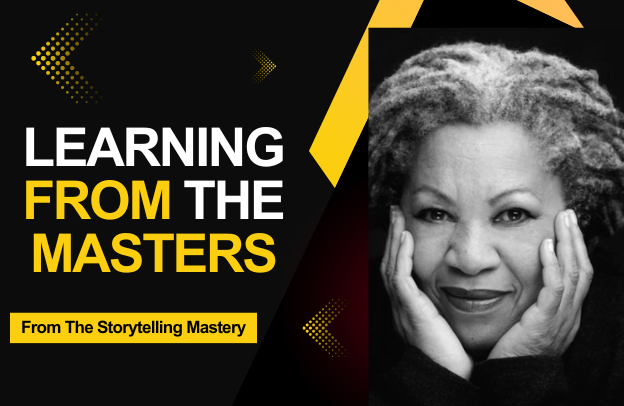It Takes a Village to Raise a Child – Five Lessons for the Diaspora

Is it true that it takes a village to raise a child? Like literarily a village to raise a child? Well, this African proverb transcends borders and cultures, it resonates with the fundamental truth that nurturing an individual is a collective endeavor.
Want to learn more about storytelling? Start by downloading the first chapter of The Storytelling Mastery.
As diaspora communities navigate the complexities of modern life, this age-old wisdom can offer profound insights and guiding principles for building stronger, more resilient societies. In this exploration, we will delve into the essence of this proverb, uncovering its deeper meanings and practical applications in the context of diaspora communities.
Through a lens of unity, reciprocity, and shared responsibility, we will discover how each lesson from this adage can inspire positive change and foster a sense of belonging, purpose, and empowerment in our diverse but global village of today. Are you ready? Then let’s dive in.
Lesson 1: Building a Foundational Support with Collective Responsibility
Nurturing an individual, especially a child, is not solely the duty of parents but a communal effort. This is a principle that is put into practice in many African cultures. In the diaspora, this way of life can equally be embraced to foster a sense of unity and shared accountability.
Doing this can mean establishing support networks in the communities where members actively participate in each other’s lives, offering guidance, care, and assistance.
This approach can lead to a more cohesive society where individuals feel valued and supported, thereby reducing isolation and fostering a nurturing environment for all.
For practical application, consider creating community groups or networks that regularly check in on the well-being of families and individuals. Encourage communal events and activities that promote interaction and mutual support. Establishing mentorship programs will also help where experienced community members can guide the younger generation on the right path to take.
Lesson 2: Bridging the Age Gap with Intergenerational Wisdom
You can see intergenerational wisdom as the delicate thread of time, weaving together the rich fabrics of knowledge, beliefs, and experiences that are passed down from ancestor to descendant.
See also Celebrating African Diaspora Heritage: An Insightful Conversation with Loretta Green-Williams
Within this intricate pattern lies a shadow, where the echoes of past traumas reverberate through the corridors of generations, a phenomenon known as intergenerational resonance. This can be fundamentally important for healing and more.
Consider, for instance, our extensive research spanning several years on the presence of Africans in northern Italy. We embarked on a comprehensive documentary and research endeavor titled “The Journey,” which involved interviewing numerous first-generation Africans residing in the region.
The project unfolded in three parts. Initially, we delved into the experiences of the first generation of African immigrants. Subsequently, we explored a specific territory in Verona where many of them settled, before broadening our investigation to encompass similar communities in the Veneto region, such as Padova and Vicenza.
That was when our focus shifted towards examining the integration of immigrant children within the Italian educational system, thus unraveling intricate connections and generational narratives.
In the diaspora, there is immense value in harnessing the wisdom of older generations. By creating spaces where elders can share their experiences and insights, communities can preserve cultural heritage and instill a sense of identity and belonging in younger members.
This transfer of knowledge can bridge generational gaps and strengthen the cultural fabric in the diaspora community.
For application, consider organizing storytelling sessions where elders can share their life experiences and cultural traditions with the younger ones. Develop intergenerational programs that pair young people with seniors for learning and mentorship. We can also promote the preservation and celebration of cultural heritage through festivals and cultural events.
Lesson 3: Shared Resources and Foster Economic Empowerment
The concept of a village implies shared resources and mutual aid. In diaspora communities, pooling resources can lead to economic empowerment and resilience. Cooperative models, such as community savings groups or cooperative businesses, can provide financial stability and opportunities for growth.
See also Connecting with Your Tribe: Using Storytelling to Cultivate a Loyal Community
By working together, communities can create a safety net that supports individual and collective advancement.
To effectively do this, consider establishing community-based savings and loan associations to provide financial support for members. We know these are not always easy, but it will help to promote cooperative businesses that reinvest profits into the community. Encourage skills-sharing and collaborative projects that enhance economic opportunities.
Lesson 4: Inclusive Education to Enhance Learning
Education is a communal endeavor in the proverb’s context. In diaspora communities, inclusive and diverse educational opportunities can enrich learning experiences. By incorporating multicultural perspectives and values, education can become a tool for unity and mutual understanding.
This approach not only benefits children but also adults, and it helps to promote lifelong learning and a deeper appreciation of diverse cultures.
Do you want to apply this lesson? consider the integration of multicultural curricula in schools that reflect the diverse backgrounds of the community. It will also help to offer community education programs that include cultural studies, language classes, and history lessons. It’s important also to encourage partnerships between schools and community organizations to create inclusive educational initiatives.
Lesson 5: Building Stronger, and More Resilient Communities through Social Cohesion
Social cohesion refers to the degree of connectedness and solidarity within a society or community. It reflects the extent to which individuals in a society cooperate, share common values, and feel a sense of belonging to the larger group.
Social cohesion is often measured by factors such as trust among members of society, levels of social participation, equality of opportunity, and inclusion of diverse groups.
In diaspora settings, fostering a sense of belonging and mutual respect is crucial for building strong, resilient communities. By promoting inclusivity, empathy, and cooperation, communities can overcome challenges and thrive.
Social cohesion can be enhanced through regular communal activities, open dialogue, and a commitment to resolving conflicts peacefully.
Now here is how this can be applied: consider organizing regular community meetings and forums to discuss and address common concerns. Develop initiatives that celebrate diversity and promote unity, such as cultural festivals and community service projects.
Implement conflict resolution programs that encourage dialogue and understanding among community members.
Lesson 6: Cultivating Mental Well-being through Emotional Support system
In diaspora communities, mental well-being can be enhanced through emotional support networks where individuals can express their feelings and seek help without stigma.
It’s important to always remember that in the diaspora community, emotional support plays a crucial role in promoting mental well-being. What that means is when individuals face life’s difficulties, having a strong support network can significantly impact their ability to cope and maintain resilience.
So, a strong emotional support system can lead to healthier, more resilient individuals in the community.
The possible ways to apply this lesson are as follows: Create support groups for different demographics, such as parents, youth, or immigrants, where members can share their experiences and emotions.
See also Reimagining Women’s Health: A Call to Action in the 2024 US Presidential Election
Establish community mental health resources, including counseling services and workshops on stress management and emotional well-being.
Wherever it’s possible, promote a culture of openness and acceptance regarding mental health issues. This will help to reduce the stigma people often feel.
Lesson 7: Encouraging Active Participation and Civic Engagements
In the diaspora, promoting civic engagement can lead to empowered communities where members are involved in decision-making processes and local governance. This involvement ensures that the community’s needs and voices are heard and addressed.
To apply this lesson, consider encouraging community members to participate in local elections and civic activities. Organize town hall meetings and forums to discuss community issues and solutions. Remember also to create volunteer opportunities for community improvement projects.
These are some of the ways to leverage these principles in our lives today. These are rooted in ancient wisdom, and they remain relevant and powerful tools for fostering unity, resilience, and progress in today’s diverse world.
Want to learn more about storytelling? Start by downloading the first chapter of The Storytelling Mastery.





